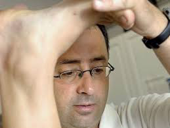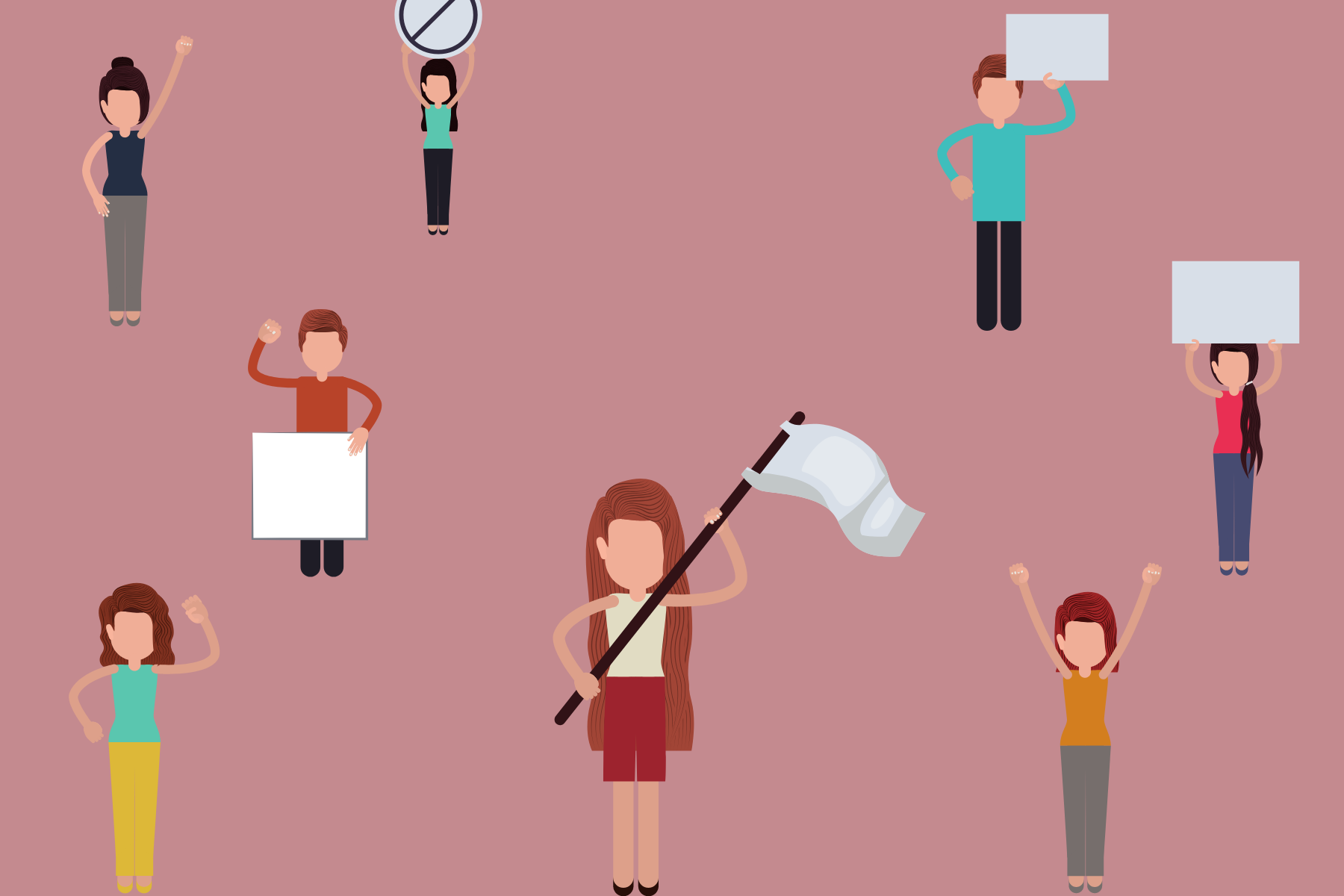By Christa Boynton, Nathalie Soto, Keyla De Los Santos, Nathan Swetz, Ashley Bills, Chaz Patton
Introduction
College students who experience sexual assault can have psychological/mental, physical and emotional effects after the traumatic experience. Every individual is different and copes with the aftermath of a sexual assault differently. For some individuals, being a victim of sexual assault can have long-term effects while for others, it can have short-term effects. A sexual assault survivor might express their emotions by being angry and hopeless, in disbelief and denial, or are calm and distant.
An individual who suffered from sexual assault might feel depressed, unhappy, and hopeless for long periods of time. This can affect behavior and relationships with others. Depression is a serious mental health condition that interrupts regular thought patterns.
Other common effects include flashbacks, also known as Post-Traumatic Stress Disorder, which are memories from past trauma that feel as if though they are occurring in the present moment. A survivor might feel like the sexual assault experience is occurring all over again, which makes it difficult to connect with reality. Flashbacks may be triggered by ordinary experiences that connect with senses like smell, taste, etc. It is normal for sexual assault victims to experience emotions like fear, anxiety, and stress. Long term PTSD can result in the victim feeling constantly in danger, which makes it difficult to function on a day-to-day basis.
Suicidal thoughts or feelings of not wanting to be alive might occur with a survivor of sexual assault due to feeling unworthy or feeling as if it was their fault the perpetrator took advantage of them. They might have a difficult time concentrating in school and may not feel in the present moment. These are common symptoms of dissociation, a defense mechanism the brain utilizes to cope with such trauma.
Terms
- Sexual Harassment- Making unwelcome and inappropriate sexual remarks or physical advances in a workplace or social situation.
- Sexual Assault- Touching any part of another person’s body in a sexual way without that person’s consent.
- Sexual Outercourse- Sexual activity that usually does not include penetration but includes various forms of sexual and non-sexual activity, such as mutual masturbation, kissing, or cuddling.
- Sexual Intercourse- “The insertion and thrusting of the penis, usually when erect, into the vagina for sexual pleasure, reproduction, or both. Other forms of penetrative sexual intercourse include anal sex (penetration of the anus by the penis), oral sex (penetration of the mouth by the penis or oral penetration of the female genitalia), fingering (sexual penetration by the fingers), and penetration by use of a dildo.”
- Sexual Abuse- Unwanted sexual activity, with perpetrators using force. Perpetrators often times make threats or take advantage of victims not able to give consent.
The topic of sexual assault and rape has risen over the past few years and is an unfortunate common occurrence in today’s world. Sexual assault is the most prevalent among college students. A large population affected lies within the Greek system (fraternities and sororities), the LGBTQ+ community, and athletic communities.Current sexual assault statistics and stories emphasis the commonness of sexual assault and rape on college campuses. According to The Conversation, about 1 in 5 women and 1 in 16 men are sexually assaulted while in college. The first six weeks of the college year is known as the “red zone,” in which the highest number of sexual assaults on campus happen. 50 percent of assaults occur during the “red zone.”
Athletics

It is common for sexual harassment or assault to occur in athletic communities. College athletes are three times more likely to get sexual misconduct complaints. One of the latest cases occurred within the Michigan State Gymnastics Team. According to The Cut, in 2016, the Michigan State head trainer, Larry Nassar, was charged with child pornography and sexual assault. Nassar would penetrate the female gymnasts with his hand without warning. He would penetrate the women with his hand when treating the gymnast’s injuries. He would justify his actions by telling them it was for their treatment and would help with their recovery. By the time the female gymnasts got the courage to speak up about his sexual actions and brought it to court, he had over 300 victims. Sexual assault plays a large role in Greek life as well.
Greek Life

Various studies have made it clear that sorority women are at greater risk for sexual assault and rape than non-sorority women. This is due to the fact that sorority women are in constant contact and affiliation with fraternity men and they are easily affected by alcohol, which is consumed often in Greek life. A sorority is a way for college students to meet new people and to become a part of a group early on in their college career. Joining a sorority or fraternity creates opportunities to experience. Almost all Greek events are held off-campus, so there is a larger chance that alcohol will be served. According to encompass, approximately 1 in 4 college women has experienced rape or attempted rape. Similarly, to athletics and Greek life, the LGBTQ+ Community has also been affected by sexual assault in great measure.
LGBTQ+ Community

The LGBTQ+ community is also affected by sexual assault. According to the Human Rights Campaign “44 percent of lesbians and 61 percent of bisexual women experience rape, physical violence, or stalking by an intimate partner, compared to 35 percent of heterosexual women” and also “26 percent of gay men and 37 percent of bisexual men experience rape, physical violence, or stalking by an intimate partner, compared to 29 percent of heterosexual men” (HRC). One study found that 73% of LGBTQ+ college students experience sexual harassment or abuse and more than 6% of LGBTQ+ college students change their school or major as a result. These assaults can have severe effects on the victims and can even result in them dropping out. According to Slate, at BYU, gay men were actually punished by suspension and expulsion after reporting sexual assault on campus. This led to a large controversy around the campus itself because of BYU’s policy on “Homosexual Behavior” in which the victim is actually punished for being involved in a sexual assault by someone of the same sex. Currently, the federal government is investigating the BYU’s policies, along with 200 other college campuses.
Before & After The Experience
The presence of alcohol on college campuses is a huge contributing factor to the increased occurrence of sexual assault. College is typically the place where young people get to really play around with sex and alcohol. The combination of these can lead to both inappropriate and unsafe situations for many young women and even young men. Alcohol is used to create situations for sexual assault. Peer pressure often leads to college students drinking more than they intend. According to alcohol.org, being drunk and taken advantage of, drinking a spiked drink, or taking a date rape drug all lead to a vulnerable victim who can’t fight back. Studies say that 15 percent of first-year college women experienced sex in which they were not fully coherent and able to give consent to have sex. Fraternity members and male athletes are more likely to be a perpetrator. Male college athletes who participate in aggressive sports are more likely to have forced, unwanted sex. They can be much more accepting of violence and hostility towards women, according to Alcohol.org. The LGBTQ+ community is a place of equality and self-expression but can be faced with fear and discrimination. Almost 50 percent of lesbian and bisexual women have been raped, compared to less than 15 percent of heterosexual women. Higher suicide rates also correlate with sexual assault rates in the LGBTQ+ community, which have the highest rates of attempted and completed suicide. Over half of the women who are sexually assaulted felt that they couldn’t tell anyone because that it wouldn’t be taken seriously or denied support. Much of the time, perpetrators are defended over the victim. The victim is typically shamed and blamed for their actions which may have contributed to the assault. The #MeToo movement has helped to make victims feel more comfortable coming forward. Many women who are sexually assaulted are often faced with depression, anxiety, and PTSD following the assault, according to Women’s Health. According to APA, in order to move forward, victims are encouraged to establish and trust personal boundaries, confide in an adviser, consult the university’s counseling center, report the offense, and seek support.
Brock Turner
College athlete, Brock Turner was taken to court for three sexual assault cases. One in which he performed sexual outercourse on an intoxicated and unconscious woman. According to NBC News, in the case, People vs. Brock Turner case, Brock’s attorney explains that they tried overturning the ruling because Brock was only seeking “sexual outercourse” and wasn’t intending to actually “rape the victim.” According to the Washington Post, Brock’s Father, who is speaking up to say that his son had to pay a “very steep price for only twenty minutes of action” and doesn’t defend his son’s actions, but thinks he shouldn’t have to endure such a “harsh” punishment for the incident. The article lets Brock Turner have his say, but the way the rest is written is from the victim’s standpoint and does not agree with Brock’s Father. According to The Cut, Brocks friend wrote a letter to the Judge assigned to Brock Turner’s case, stating that Brock and the victim were both intoxicated and that they “made stupid mistakes.” He goes on to say that a rapist is not a kidnapper and that the heat-of-the-moment drunk situations happen with college students and they can just be “stupid and make stupid mistakes.” This article was written in defense of Brock Turner and is aimed towards people who do not think sexual assault is as damaging as other crimes like kidnapping. Stories like this create fear for college students to speak up. It also shows that the court will lean towards blaming the victim for being in the situation and defend the perpetrator. Stories like this lead to emotional effects of shock, anger, blame, guilt, fear, hopelessness, self-blame, embarrassment, vulnerability, lack of control, and numbness.
“These are not rapists. These are idiot boys and girls having too much to drink and not being aware of their surroundings and having clouded judgement”
-Leslie Rasmussen
Music & Music Videos
Music videos, like Candy Shop and My Humps, show college men and women that bodies are meant for temporary pleasure and that the woman is simply there to give men pleasure. This kind of thinking causes male college students to think that they can use women when they want and causes female college students to think that their bodies are objects created to bring males sexual pleasure. This conveys to males that all females want sexual attention, which is not the case.
Effects
● The most common mental/psychological effects include depression, post-traumatic stress disorder, and flashbacks, according to Rainn & Main Web.
● According to Samuel Merritt, common emotional effects of sexual assault include shock, anger, blame, guilt, fear, hopelessness, self-blame, embarrassment, vulnerability, lack of control, and numbness.
● The most common physical effects a sexual assault survivor experiences are self-harm, sexually transmitted diseases, eating disorders, sleep disorders, and pregnancy, according to the WCSAP.
Resources
Sexual assault affects thousands of people each year. To help this cause and to fight back, we need to spread the word of these effects and help each other. According to Psychology Today, there are many resources created for college students which allow them to the process through the event, challenge trauma-based thinking, make meaning of what happened, reduce symptoms of depression and anxiety, increase confidence and competence, and reduce/eliminate symptoms of PTSD.
Learn more about this by watching Chico State’s Gender and Sexuality Equity Center’s video on consent.
Please use the links below for further resources.
Kendall Hall, Room 220
530-898-4949
530-898-5195
titleix@csuchico.edu
Student Services Center 430
530-898-3030
safeplace@csuchico.edu
Rape Crisis Intervention and Prevention
2889 Cohasset Road, Suite 2 Chico, CA
(530)-891-1331 Toll Free: 1-(877)-452-9588
info@rapecrisis.org
601 Warner Street
530-898-5241
shc@csuchico.edu
Student Services Center, Room 430
24-Hour Service
530-898-6345
